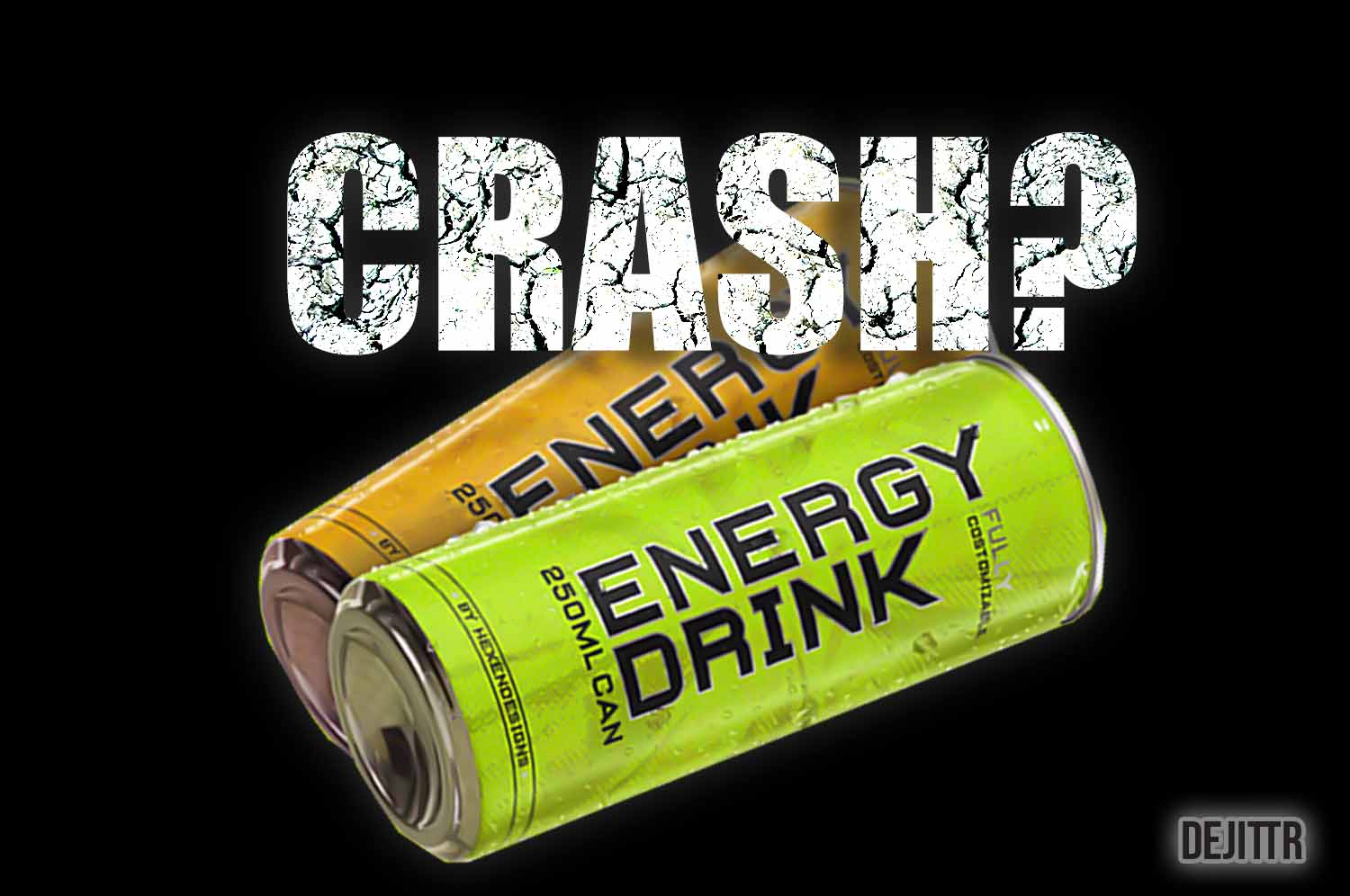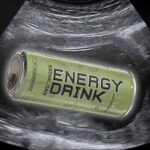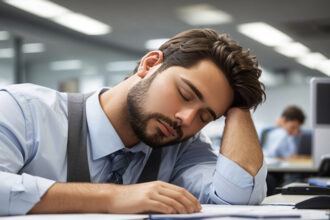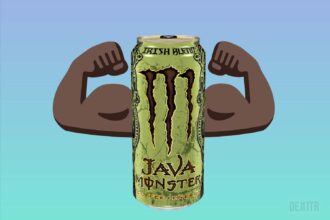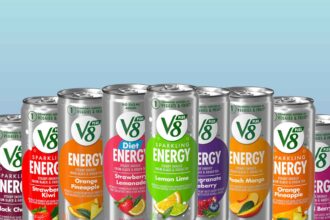Although occasional consumption of energy drinks can be acceptable, it is essential to be aware of their after-effects.
Key Takeaways:
Energy drinks can make you crash because they have hormone level boosting components like caffeine and sugar, which peak and fall off – resulting in a crash. Once you start feeling fatigued and have a headache after drinking an energy drink, it’s generally an indication of the crash.
Read on till the end to learn more about what happens when you drink an energy drink, why you crash after drinking it, and how to deal with it.
What Exactly Happens When You Drink An Energy Drink?
Here’s a complete breakdown of the effect of energy drink based on different time frames after you drink it:
| Time: | Effect: |
| 10 min | After 10 mins of consuming an energy drink, caffeine enters the bloodstream. Heart Rate and blood pressure elevate |
| 15-45 min | Action Time! Caffeine peaks in your bloodstream, and you’ll start feeling the stimulating effect like better alertness and concentration |
| 30-50 min | The body absorbs all caffeine. The liver absorbs sugar into the bloodstream. |
| 1 hour | Sugar Crash Time! The sugar crash happens, and your caffeine level decreases – you start feeling tired and low energy. |
| 5-6 hours | Caffeine half-life – means it takes this much time for your body to reduce the caffeine percentage in the body by half. |
| 12 hours | Generally, caffeine is fully removed from the bloodstream by now. |
| 12-24 hours | You will start feeling withdrawal symptoms like headache, irritability, and constipation. |
| 7-12 days | Your body becomes tolerant to the regular caffeine dosage – you won’t feel the effects much. |
[Source]
You may have noticed that some energy drinks are effective for the first few hours – but subsequently leave you with a massive crash.
How Long Does An Energy Drink Crash Last?
On average, within an hour of consuming an energy drink, the crash begins. Usually, it takes around 12 hours to completely remove caffeine from the bloodstream; however, the speed of it can vary based on factors like age, body, and genetics.
Caffeine is one of the key stimulating ingredients in any energy drink. So how much and how long the crash affects you also depends on caffeine.
Typically, the whole amount of caffeine is absorbed within 30 to 50 minutes of intake. By this point, the energy drink’s sugar has also entered the bloodstream.
Caffeine impacts start to fade after an hour, and a sugar crash also happens. You’ll begin to feel fatigued, and your energy levels will decline.
The typical half-life of caffeine can be up to 5 hours. The period it takes for a substance’s quantity to be decreased to half its initial value is known as its half-life.
Those who are sensitive to caffeine may have effects for several hours or even several days after consumption. Remember, caffeine can take up to 12 hours to be completely removed from your bloodstream.
Moreover, if you are a regular caffeine consumer, you will likely feel withdrawal symptoms – 12-24 hours after you intake the last dose.
Caffeine withdrawal results in moderate to clinically severe discomfort and reduced daily activities. The symptoms’ intensity varies from person to person, but the most frequent symptoms include:
- Headache
- Decreased alertness
- Exhaustion
- Decreased energy
- Sleepiness
- Irritability
- Feeling foggy
- Reduced contentedness
- Low mood
- Trouble concentrating
According to a study, the likelihood of experiencing a headache is over 50%, and the possibility of experiencing clinically significant discomfort or functional impairment is around 13%.
Usually, symptoms begin 12 to 24 hours after ceasing caffeine use, peak at 20 to 51 hours, and can continue for two to nine days.
Generally, it is recommended not to consume caffeine at least 6 hours before bed because of its long-term effects.
Why Do I Get Tired After Drinking an Energy Drink?
To explain the topic in a more relatable way, let’s say you have a fixed energy point to be utilized in the entire day.
Various things you do throughout the day and your body’s metabolic process affect these energy points. Therefore, you will either gain or lose these energy points to a certain level before you ultimately go to bed.
- Any energy resource like food or energy drink adds to your body’s energy pool.
- On the other hand, any energy-demanding activity will pull out energy and thus reduce the energy pool.
Because your body requires energy to survive, it will always try to conserve it.
Caffeine and other stimulants in energy drinks trick your body into utilizing more energy than it desires. This can be helpful if you need more energy for a little time, but it confuses your body’s method for ensuring it doesn’t run out of energy.
When it recognizes that you no longer have as much energy as you should, it prevents you from doing more by making you extremely exhausted. Thus, you experience tiredness and crash!
Another way to think about it: Imagine yourself as a phone that isn’t connected to a charger (charging would, in this case, be your sleep).
You overclock yourself when you consume energy drinks, which may enable you to do things more quickly but also causes your battery to deplete much more quickly.
Does Sugar-Free Red Bull Make You Crash?
Even though sugar-free Red Bull doesn’t have sugar, caffeine is present in it. So consuming Sugar-free Red Bull, you will still experience a crash.
Energy drinks like Red Bull include sugar and caffeine, which increase your levels of insulin, dopamine, and adrenaline.
When the caffeine and sugar leave your body, your hormone levels return to normal, which results in the exhaustion known as the crash.
A crash is not the result of only one thing.
It is mainly the sugar content in energy drinks that can lead to a crash, but caffeine crashes are also possible.
So if you’re worried about a sugar crash, switching to sugar-free Red Bull may help. However, you can’t avoid the possibility of a caffeine crash.
If you are looking for a natural energy drink option to try, we highly recommend checking our DIY Natural Energy Drink Guide.
How To Know If You’re Experiencing an Energy Drink Crash?
Here are symptoms to know you have got an energy drink. It can be caffeine or a sugar crash, but the symptoms are similar.
Some of the common symptoms of Caffeine Crash:
- Irritability
- Headache
- Unable to concentrate
- Extreme fatigue
Some of the common symptoms of Sugar Crash:
- Hunger
- Irritability
- Fatigue
- Headaches
What To Do When You Have an Energy Drink Crash?
To fully recover from an energy drink crash, you’ll need to wait it out. And it could take 4 to 6 hours or more (usually, it takes around 12 hours for the total caffeine removal from the bloodstream). Do note that if you are caffeine-sensitive, you might have to wait much longer.
Put an end to your caffeine intake for that given day. Even though it seems obvious, make sure you don’t eat your usual chocolate-covered snack bar in the middle of the afternoon by accident.
Drink lots of water. Because caffeine is a diuretic, you need to drink more water to make up for the amount you lose via urination. (Dehydration should not be added to the discomfort)
Perform deep breathing. If you’re worried, it’s likely that you’re breathing quickly, which will make you feel even more uncomfortable.
Take a few calm, deep, purposeful breaths to restore your breathing to normal and lower your anxiety.


